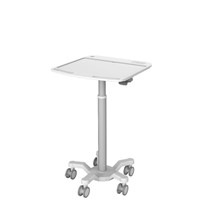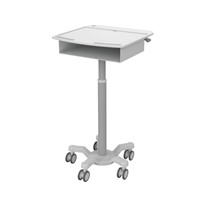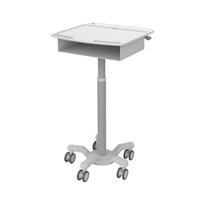The prospect of doing so has been raised following the federal government's decision to scrap a planned $5 million Northern Territory GP super-clinic in Darwin's northern suburbs.
Minister for Health Peter Dutton said super-clinics around the country had failed to reduce hospital waiting times and the money would be better spent on hospital beds.
The Australian Healthcare and Hospitals Association (AHHA) has said however, winding back GP super-clinics is "not a sensible move" as evidence shows they reduce hospital admissions and improve health outcomes, in a recent statement.
Warren Macleod, Director of Mac's Metalcraft, a specialist supplier of aged care beds, concurs with this view.
"Hospital waiting times are blowing out, and if GP super-clinics can do more you will have less people crowding hospitals," he said.
AHHA Chief Executive Alison Verhoeven said many functioning super-clinics established under the previous Labor government were fully operational and had been providing much needed services in communities who had previously had difficulty accessing after-hours and bulk-billed care.
"Australia is playing catch up in primary care reform and some of the initiatives under the super-clinic program have been addressing not only new models of care but research and education needs in primary care," she said.
"A number of super-clinics are being operated by the university sector, some collocated with major teaching hospitals and university campuses.
"These university-led and supported initiatives are an important contribution to primary care reform in Australia as well as to clinical practice, education and research. In particular, there is a valuable opportunity presented by the university sector's engagement with the super-clinic program to invest in translational research in primary care and its interface with acute care.
"Similar collaborations are operating between the private sector and universities, with clinics having recently opened in close proximity to the Sunshine Coast University and the University of Canberra.
"These clinics will see not only improved health services available in these areas, but much needed teaching and clinical placement opportunities for a range of disciplines across allied health, as well as in medicine and nursing.
"Such start-ups require investment not only from the commonwealth, but also from the parent organisations.
"Small general practices are generally not able to afford the investment of financial and human resources to drive these changes.
"At a time when the health budget is under scrutiny, it is important that funding decisions are made sensibly, not for short-term political gains.
"While some investments in super-clinics may not yet be demonstrating returns, there are other clinics which are already making valuable contributions, not only by meeting the health needs of their community, but also by contributing to research and education.
"The loss of this opportunity would be regrettable."
Super-clinics "a bad experiment": AMA
But the AMA has said since their inception super-clinics had proved to be "anything but super".
"Super-clinics were supposed to provide primary care services in areas where patients had poor access to GPs, but some have been built in places where they compete with successful long-established general practices," AMA President, Dr Steve Hambleton said in a statement released on Tuesday.
"They were supposed to fill health gaps, but the record on that has been very mixed.
"The AMA recommends that any unspent or recovered GP super-clinic funding should be directed to help upgrade existing general practices in the form of Primary Care Infrastructure Grants.
"The Auditor-General last year found the Infrastructure Grants to be delivering excellent results.
"Under the Primary Care Infrastructure Grants program, $117 million has been allocated over four years to upgrade 425 GP facilities.
"By contrast, the Auditor-General found that two GP super-clinics alone had cost taxpayers $50 million, and several more had needed substantial top-up funding.
"The Auditor-General also found that there were inadequate processes in place to assess what effect super-clinics would have on existing primary health services, whether they provided value for money, and whether they were achieving any meaningful improvements in access to health care.
Dr Steve Hambleton concluded: "The government is doing the right thing by bringing this bad experiment to an end."















-160x160-state_article-rel-cat.png)








-205x205.jpg)









(12)-205x205.jpg)